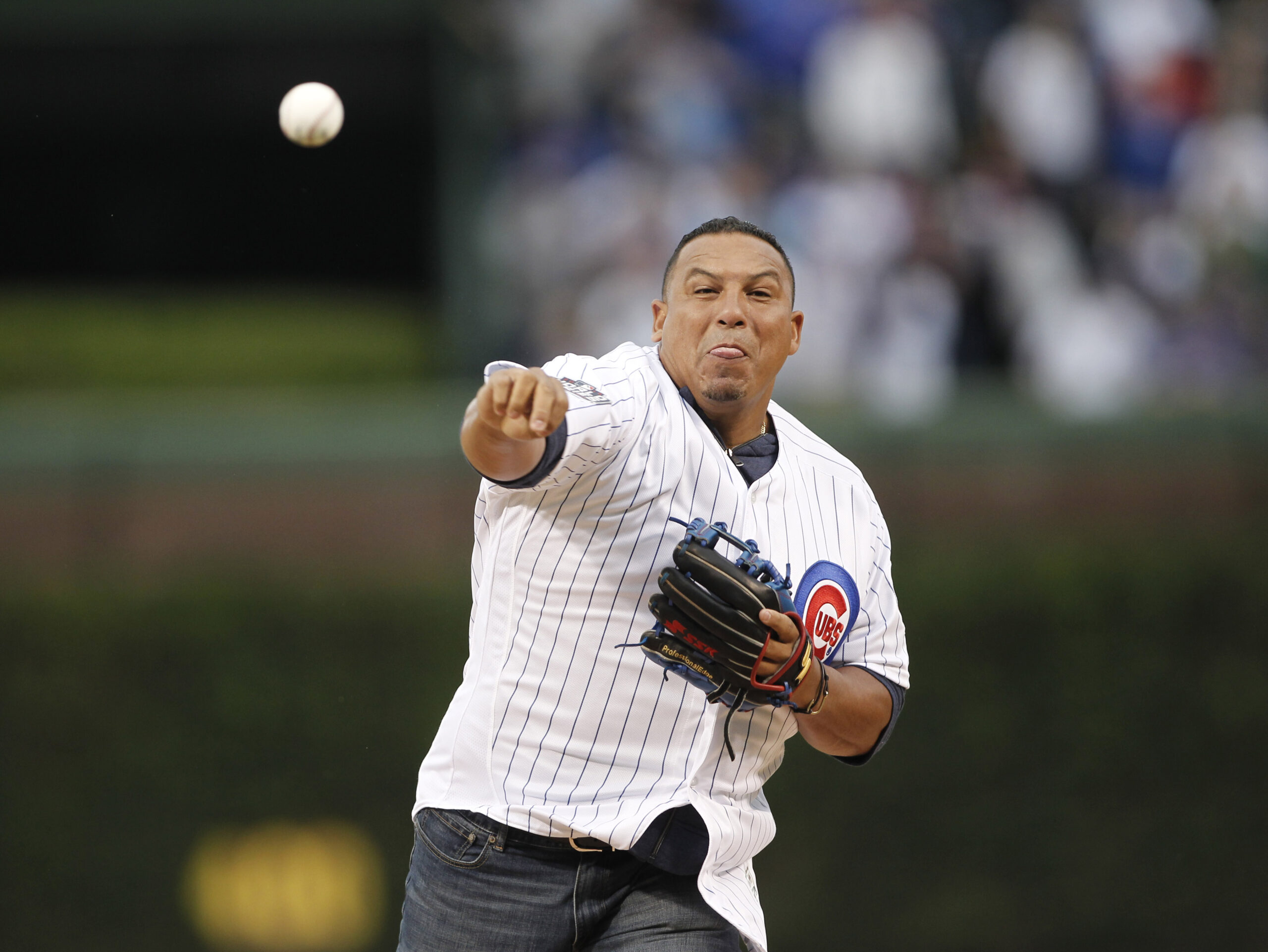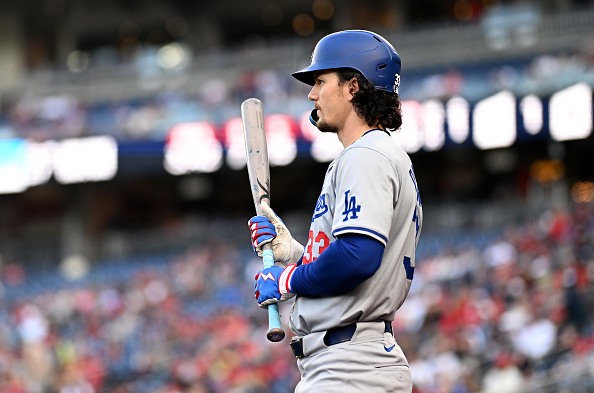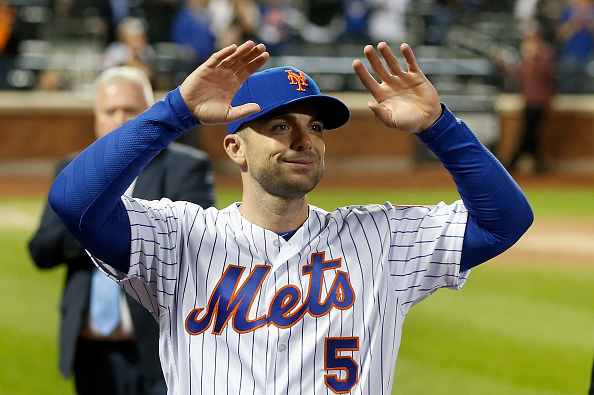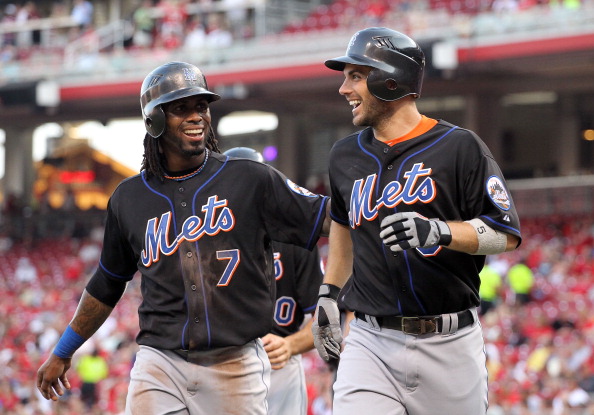This week, we celebrate the additions of Larry Walker and Derek Jeter to the National Baseball Hall of Fame. While many are up in arms about Jeter not being a unanimous selection for the Hall, he was still at least voted into the Hall. Several baseball greats have been on the other end of the spectrum after making their lone appearance on the Hall of Fame ballot. Today, we explore those who were unanimously not selected and failed to receive a single vote when they appeared on the ballot. Some of these players have careers comparable to others who have been inducted into the Hall of Fame. Based on career bWAR rating, here is a roster of the greatest players to appear on the ballot since 1980 yet fail to receive a single writer’s vote.
First Base – Cecil Cooper (36.0 WAR)
Five All-Star appearances, four top-10 finishes in MVP voting, three Silver Sluggers, two Gold Gloves, a .298 career batting average, and zero Hall of Fame votes on 1993 ballot. Cooper had a very good nine-year peak through his 17-year MLB career, similar to Don Mattingly, Steve Garvey, Keith Hernandez and other great first basemen who just missed the call from the Hall.
HOF Comps (bWAR): George Kell (37.4), Jim Bottomley (35.3)
Second Base – Dick McAuliffe (37.5 WAR)
McAuliffe spent 14 of his 16 big league seasons in Detroit and was an All-Star for three straight seasons from 1965 through 1967 as a shortstop and second baseman. He finished seventh in MVP voting during his best season in 1968 when he and the Tigers won the World Series. McAuliffe is a very similar player to Robby Thompson and Ray Durham, who also failed to get a vote for Hall of Fame but had a very strong five-year peak in their careers.
HOF Comp (bWAR): Bill Mazeroski (36.5)
Third Base – Troy Glaus (38.0 WAR)
Glaus was a four-time All-Star, World Series MVP in 2002, and set the all-time record for home runs by a third baseman when he led the American League with 47 in 2000. Glaus slugged 35 or more home runs and drove in more than 100 runs in four seasons. Glaus finished his career at only 33 years old with 320 career home runs and 950 runs batted in in 1,537 games across 13 years. He was a great October performer with a .321 average, nine home runs in 24 career postseason games.
HOF Comp (bWAR): Pie Traynor (36.2)
Shortstop – Rafael Furcal (39.4 WAR)
Furcal burst onto the scene with the 2000 Atlanta Braves, earning NL Rookie of the Year honors. Furcal was a spark plug at the top of Atlanta Braves playoff teams, swiping 40 or more bags twice and 316 for his career. He was a three-time All-Star for Atlanta, Los Angeles, and St. Louis before finishing his career in Miami after 14 seasons.
HOF Comps (bWAR): Phil Rizzuto (40.8), Red Schoendienst (42.3)
Left field – Roy White (46.8 WAR)
White broke into the majors with the Yankees in 1965, playing in the shadows of Mickey Mantle and Roger Maris, and ended his career in 1979 playing alongside Reggie Jackson and Thurman Munson. White played his entire 15 years in the Bronx and was an All-Star in back-to-back seasons in 1969 and 1970. White was a fixture in left field for the Yankees for a 10-year period that only saw three postseasons. White was a member of the 1977 and 1978 championship teams and hit .333 with a home run and four runs batted in during the 1978 World Series.
HOF Comps (bWAR): Lou Brock (45.3), Heinie Manush (45.8)
Center field – Jim Wynn (55.6 WAR)
Wynn was a speedy, power-hitting center-fielder for expansion years of Houston franchise for the first 10 years of his career. He had three 20-20 seasons with 20 or more home runs and stolen bases in Houston, including a career-best 37 in 1967 when he was named to his first All-Star game. Wynn was traded to Los Angeles in 1974 and would have two All-Star seasons with the Dodgers before ending career with Milwaukee in 1977. Wynn finished his career with 291 home runs and 225 stolen bases. He walked 100 or more times six seasons, leading the league twice with 148 in 1967 and 127 in 1976.
HOF Comps (bWAR): Kirby Puckett (51.1), Hack Wilson (38.9), Earl Averill (48.0)
Right field – Brian Giles (51.1 WAR)
Giles was a two-time All-Star that saw a four-year peak between 1999 and 2002 with an average of 37 home runs and 109 runs batted in during that period. Giles finished his career with a .291 average, 411 doubles, and 287 home runs across 15 seasons with the Indians, Pirates. and Padres. He appeared on a crowded Hall of Fame ballot in 2005 featuring 12 other future Hall of Fame players and received zero votes.
HOF Comps (bWAR): Sam Rice (52.7), Ralph Kiner (49.4), Chuck Klein (43.6)
Catcher – Darrell Porter (40.9 WAR)
Porter spent his 17-year career catching for small market clubs in Milwaukee, Kansas City, St. Louis, and Texas. Porter would be named to four All-Star teams and became a post-season great in 1982 when he earned both NLCS and World Series MVP honors leading St. Louis to championship. Porter hit .351 with six extra-base hits including several clutch hits during the 1982 postseason.
HOF Comps (bWAR): Rick Ferrell (33.7). Ray Shalk (33.2), Al Lopez (21.9)
Bench
Wally Joyner (35.1), Ron Fairly (35.1), Derrick Lee (34.6), Jeff Cirillo (34.5), Ken McMullen (34.0), Robby Thompson (33.9), Ray Durham (33.8), Devon White (47.3), Mike Cameron (46.7), and Mickey Tettleton (29.4) all failed to receive a single vote on their only year on the Hall of Fame ballot.
Starting Pitcher – Frank Tanana (57.1 WAR)
Tanana was on a Hall of Fame trajectory across his first six years with the Angels before peak performance dropped and yet still carved out a very productive 21-year career. Between 1975 and 1978, Tanana was named to three All-Star teams, led the league with 269 strikeouts in 1975, and received votes for Cy Young or MVP each season. Tanana would win 102 of his career 240 wins with the Angels during his first eight seasons but would have 15 total seasons with double-digit wins.
HOF Comps (bWAR): Whitey Ford (56.9), Sandy Koufax (48.9)
Starting Pitcher – Mark Langston (50.1 WAR)
Langston was a four-time All-Star that burst into the big leagues with 200 or more strikeouts in five of his six first MLB seasons with Seattle. Langston would lead the American League in that category three out of four years between 1984 and 1988 before being dealt by Seattle to Montreal for future Hall of Fame lefty, Randy Johnson. Langston signed with the Angels in 1990 and went on to three All-Star seasons in Anaheim including his career-best 19-win season in 1991. Langston would complete a 16-year MLB career with Cleveland in 1999 winning 179 games and striking out 2,464 hitters.
HOF Comps (bWAR): Sandy Koufax (48.9), Herb Pennock (45.5)
Starting Pitcher – Steve Rogers (44.7 WAR)
A right-handed pitcher that would have likely been known as Captain America if he hadn’t played his entire 13-year MLB career playing in french-speaking Montreal, Rogers was a five-time All-Star for Montreal and was good for an average of 15 wins every season between 1977 and 1983. Rogers had a National League-best 2.40 earned run average in 1982 and finished his career with 3.17 ERA.
HOF Comps (bWAR): Dizzy Dean (45.8), Bob Lemon (47.9)
Starting Pitcher – Carlos Zambrano (43.9 WAR)
This three-time All-Star finished top five in Cy Young voting in three seasons. His career ended at 31 years old in 2012 after only 12 seasons, known for his temper that many times got the best of him on the field and off.
HOF Comps (bWAR): Jack Morris (43.4), Catfish Hunter (40.9)
Starting Pitcher – Sam McDowell (41.8 WAR)
McDowell was a six-time All-Star during his 15-year MLB career with the Indians, Giants, Yankees, and Pirates. The lefty was a 20-game winner in 1970 and finished the 1965 season with an AL-best 2.18 ERA. McDowell finished with a 3.17 earned run average, 141 wins, and 2,453 strikeouts. He led the league in strikeouts five seasons with four 200-plus and two 300-plus strikeout campaigns.
HOF Comps (bWAR): Lefty Gomez (38.4), Rube Marquard (32.6)
Relief Pitcher – Don McMahon (22.4 WAR)
McMahon may be the best reliever most modern baseball fans have never heard mentioned. McMahon pitched 18 seasons between 1957 and 1974 and was named to the 1958 All-Star team in his second big league season. Pitching in an era before closers were sexy, McMahon pitched 872 games out of the bullpen won 90 games, saved 152, and finished his career with a 2.96 earned run average.
Relief Pitcher – Roberto Hernandez (18.5 WAR)
Hernandez’s 326 career saves are still 18th best all-time in the category. While not a Hall of Fame pitcher, it is surprising that he didn’t get a single vote. Other relievers that were shut out of receiving a single vote include Mike Jackson (18.9), Clay Carroll (17.7), Dan Plesac (16.9), and Derek Lowe (34.4.)
HOF Comps (bWAR): Bruce Sutter (24.1) Rollie Fingers (25.6)







